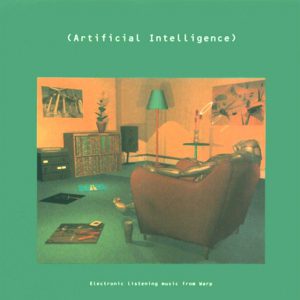
BY KAĞAN ÖZDEMİR (MBG/IV)
As someone who’s always been in the habit of exploring different genres of music and making comparisons between them, I’ve observed that the one that attracts the most debate is electronic music. Various myths and misunderstandings surround this genre, which encompasses many different styles. Even people with great taste in music sometimes show that they have false beliefs when it comes to electronic music.
The most irrational argument about electronic music that I’ve come across so far is that it requires “no actual musical talent.” The apparent fact that the artist does not play their instrument directly – which is also actually false, as most electronic musicians play and record analog or digital instruments (guitar, piano, drums, etc.) and then use software to process the recorded sound – makes people think that making electronic music is easier than making “real” music. Such arguments sometimes go so far as to imply that this kind of music is produced by people who sit in front of computers and let them make the music. However, if we dig a little deeper, we can readily see that this argument is indeed false, and that producing electronic music requires a thorough understanding of music theory and sound engineering.
The opinion that electronic music is easy to make and requires little effort to produce is most common among rock music listeners. As an old rock music elitist who has listened mostly to ’70s classical and progressive rock, I would say that contemporary rock music is itself easily made and overengineered, requiring the same amount of talent as electronic music, if not less. The reality is that most of the time the electronic artist is alone in his or her recording environment – be it a studio, a digital audio workstation, or a combination of both – with no bandmates to depend on and less well-established musical norms to refer to than rock musicians have – just his/her own musical intelligence and expertise. From this perspective, it can be argued that producing the average electronic piece is actually harder than producing the average rock piece. This is not to imply that rock music is an “easier” genre to be involved in – only that it needs a different type of musical intelligence and also experience, in that one has to communicate with bandmates and master at least one instrument, such as the good old electric guitar. In other words, different musical genres and subgenres are created by people with different intentions and talents, and comparing them on the basis of the “difficulty” of their music is a waste of time.

Another common criticism of electronic music is that it’s not capable of evoking emotions in the listener – i.e., it’s robotic or mechanical. The fact that the sound is made by analog or digital electronic devices somehow gives rise to the idea that it’s not able to reach into people’s hearts. However, I’d like to ask the following simple question: Is it not a flesh-and-blood person who is behind all those synthesizers, drum machines, waveform design programs and digital audio workstations? Or is it a robot, or an alien from the most distant corners of the universe? (If the answer is one of the latter, then I’m even more impressed.)
The reality is that artists use whatever they need to convey their ideas and emotions. The more devices they have in their toolbox, the closer they get to reaching their aim. The case for musicians is similar to that of painters: the more colors and types of paint they have on their palette, the more chance they have of creating a wonderful piece of art.
To challenge the said misunderstandings and myths about electronic music, I’d like to draw attention to one of the greatest compilation albums of all time: “Artificial Intelligence” by Warp Records (one of the record companies I like the most). The album was released to change people’s opinions concerning contemporary electronic music. It features great artists such as Autechre and Aphex Twin (under the name of The Dice Man). Every track on the album is a masterpiece on its own, but for a coherent listening experience I would recommend listening to it as a whole. The tracks that made the biggest impression on me were “Preminition” by Musicology, “Spiritual High” by UP! and “The Egg” by Autechre. This last piece is, by the way, an early version of Autechre’s 1993 track “Eggshell” from the album “Incunabula.” The cover art for “Artificial Intelligence” shows a humanoid being lying back in an armchair, listening to music, with Kraftwerk’s “Autobahn” and Pink Floyd’s “Dark Side of the Moon” albums on the floor. This was intentional, to make people realize that this album, like those, is meant to be listened to with one’s whole attention, rather than as background music.
In conclusion, I’d like to say that no genre of music has ever existed that is without emotion, and merely mechanical. Music has always been a higher product of the human mind, and it’s impossible to separate it from our feelings and experiences. Each genre has its own good points, and it’s foolish to compare them. The spectrum of sounds one can create with electronic devices is almost limitless, and this is an offer that an artist can’t refuse. Beyond this wall of prejudice lie the soundtracks of every possible dream. So sit back, relax, and try to enjoy the music of today and the future.
